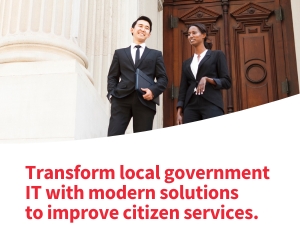Benbrook Gains Flexibility from Cloud Scalability and Mobility
The lessons Cooper learned from the transition to a cloud-based telephone system highlighted the advantages for other cities that may choose to follow Benbrook: flexibility, mobility and scalability.
Benbrook has about 150 city employees and 100 phones, and its cloud-based phone system smoothly handles their needs. The city has plenty of bandwidth to add more phones if required, and employees don’t have to remain in the office to use their office phone numbers.
“You can forward your calls to a cellphone or other destinations,” Cooper said. “This sort of flexibility means mobility.”
City employees can conduct all office calls on their cellphones, and it will appear to callers that the government employees are communicating from their office numbers. Employees expecting calls but hesitant to share their personal cell numbers can mask them. Again, it will appear to callers that the employees are communicating through their office phones.
“It’s super awesome,” Cooper said.
The reliability of the system means that employees can move as needed. In a disaster, city employees can relocate and continue to use their phones without interruption.
And Cooper remains enthusiastic about the cost savings: Today, the total cost of the city’s cloud-based phone system is about half of what it was before its adoption in 2019.
The system also provides visibility, with clear insights into city employees’ phone usage.
“I was shocked to figure out how little we are actually on the phone,” Cooper said.
Keep this page bookmarked for our coverage of the TAGITM 2024 Annual conference. Follow us on X, formerly known as Twitter, at @StateTech and the official conference Twitter account, @TAGITM. Join the conversation using the hashtag #TAGITM.











